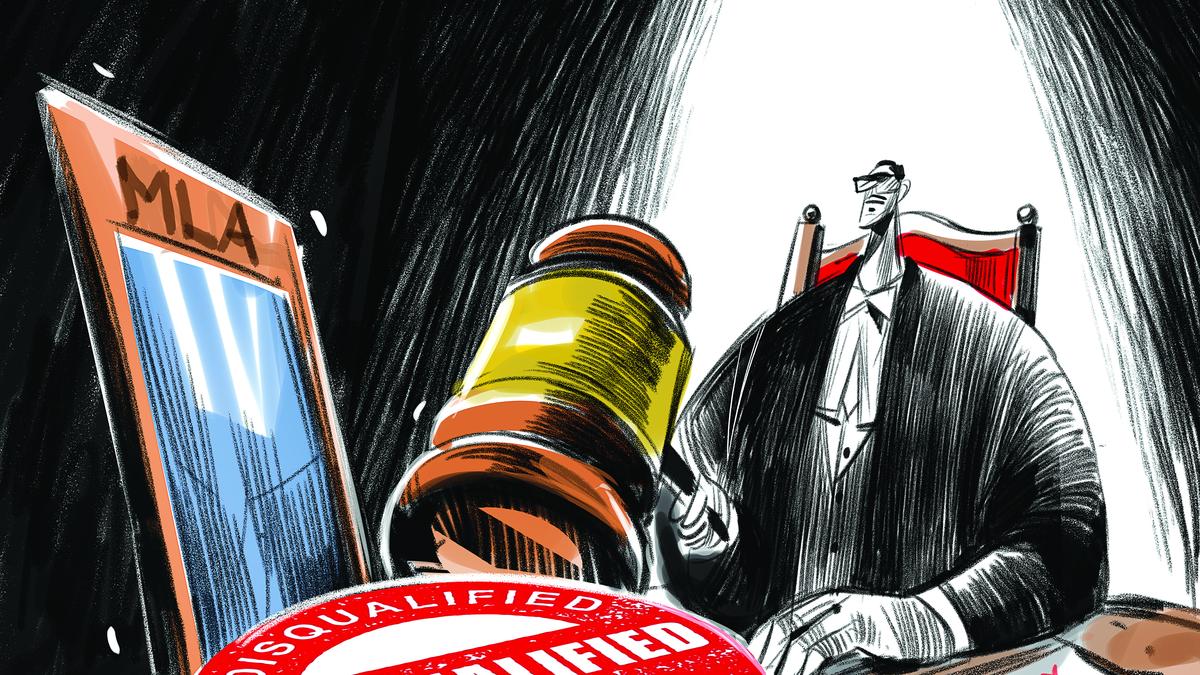
When Turkey’s Honorary Consul-General was disqualified as MLA in Tamil Nadu
The Hindu
K.S. Haja Shereff disqualified as MLA for serving as Honorary Consul-General of Turkey, despite government approval.
In 1978, the Government of Turkey had urged the Government of India to forward three names to be considered for appointment as its Honorary Consul-General in Madras. The Indian Government sent three names, including that of K.S. Haja Shereff, a Congress leader. In February 1980, the Turkish Embassy sought the Government of India’s concurrence to appoint Shereff as the Honorary Consul-General. In the meantime, the Assembly election was held in May 1980, and Shereff was elected from Thiruvallikkeni (Triplicane) in Chennai. The following month, he took the oath as an MLA and was also elected leader of the Congress Legislature Party. In August that year, he was appointed as Honorary Consul-General of Turkey, an office he assumed on October 29, 1980.
Shortly thereafter, seven MLAs representing various political parties, a Lok Sabha Member, and two advocates submitted petitions on different dates to Tamil Nadu Governor Sadiq Ali, contending that by assuming office as Honorary Consul-General of Turkey, Shereff had incurred disqualification as a legislator under Article 192 (2) of the Constitution. In April 1981, Ali referred the matter to the Election Commission of India. After receiving its opinion, the Governor issued an order, dated November 10, 1981, disqualifying Shereff from the Assembly under Article 191 (1) (d) of the Constitution.
Shereff moved the Madras High Court challenging his disqualification. In view of the importance of the case, Justice Ramanujam, before whom the petition came up, referred it to a Full Bench. Before the Full Bench, Shereff argued that he was not appointed as a Career Consul, but only as an Honorary Consul-General; therefore, it had not resulted in any allegiance to a foreign State. Besides, he assumed office “only after securing the approval of the Government of India”.
However, the court pointed out that the Indian government’s approval was of the least consequence, as his name was suggested at a time when he had not become a Member of the Tamil Nadu Assembly. Originally, a warrant of appointment was issued in April 1980. By the time approval could be given by the Government of India, Turkey’s President, who had signed it, had ceased to be in office. Hence, a fresh warrant came to be issued. “It was by that time that the petitioner was elected and became a Member of the Assembly. There is nothing to indicate in the correspondence that he had ever brought to the notice of the Government of India that he had since become a Member of the Assembly and as to whether he could take up the assignment as already proposed,” the court said.
The Full Bench said that without being aware of what had developed subsequently, the proposal initiated earlier was further pursued, and the petitioner assumed office on October 29, 1980. “Even if the Government of India had approved of such appointment, being fully aware of his membership of the Legislature, it cannot cure the disqualification contemplated under the Constitution,” it said.
Shereff also argued that he was appointed only for limited purposes, including legislation of copies of all contracts and registration and transactions, and copies of documents in foreign language. But the court held that by accepting the office of Honorary Consul-General, he had “adhered to a foreign State, irrespective of whether he had a limited role to play or whether he had done anything or not”. The constitutional disqualification would not depend upon the extent of commissions or omissions on the part of the incumbent.
Referring to the guidelines issued to the Honorary Consul-General, the court pointed out, “He has been directed to take custody of three Turkish flags, one small Turkish flag [car], one Indian flag, two seals, two National Anthem tapes, and one National Anthem record from the brother-in-law of the previous Honorary Consul at Madras. The guidelines state that, for all disputes arising between the Honorary Consul and local authority, he will have to correspond with Turkish Diplomatic Mission. He will have to represent the interests of the Turkish State and all Turkish nationals. Clause 2 (d) states miscellaneous subjects, which from time to time he may be called upon to do in the interests of Turkish Government.”

Senior CPI(M) leader A.K. Balan, who was removed from the party central committee at the 24th Party Congress in Madurai late last week in accordance with the age cap of 75 years for party positions, made a poignantly reflective Facebook post on Saturday, recalling his early years in the party and also stating, figuratively, that he is on the verge of yet another eviction – from the AKG Flat this time.





















 Run 3 Space | Play Space Running Game
Run 3 Space | Play Space Running Game Traffic Jam 3D | Online Racing Game
Traffic Jam 3D | Online Racing Game Duck Hunt | Play Old Classic Game
Duck Hunt | Play Old Classic Game










